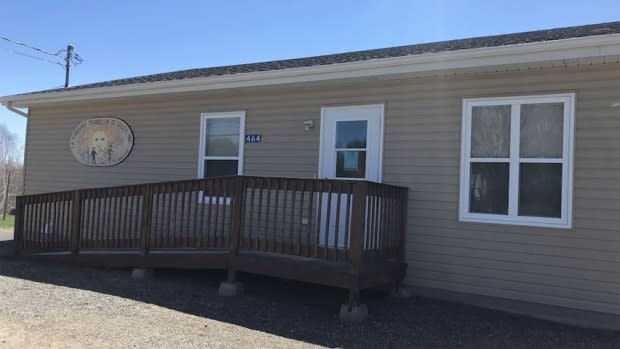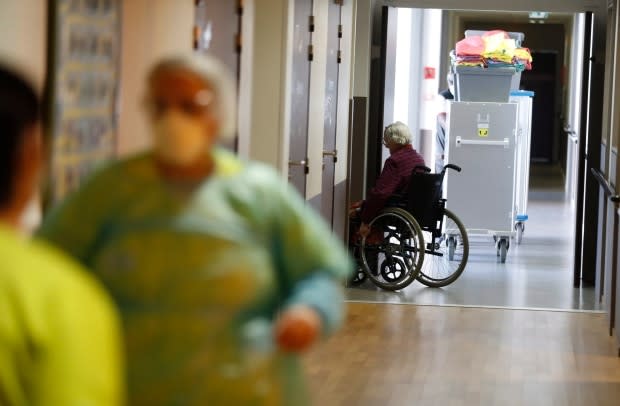Someone over 90 in Campbellton region has COVID-19, 2nd new case in a week
New Brunswick has a new confirmed case of COVID-19, a person over the age of 90 in the Campbellton region, Public Health announced Tuesday.
It comes five days after the province's only other active case was confirmed in the Campbellton region — a child who attended two daycares in the region.
Both cases remain under investigation. Neither individual is hospitalized.
"Although community transmission has not been confirmed, it is important to be aware that it remains a possibility," Dr. Jennifer Russell, the province's chief medical officer of health, said in a statement.
"Every New Brunswicker should remain vigilant," she said. "Please continue to limit your close contacts to prevent the chance of spreading the virus, especially to those who are more vulnerable to complications of COVID-19."
To date, 22,920 tests have been performed for COVID-19, and 120 people have recovered from the respiratory disease.
About 35 people who the infected child in the Campbellton region may have come into contact with through a daycare in the nearby village of Balmoral were ordered May 21 to quarantine for 14 days.
The Tourbillon de Soleil daycare remains closed until further notice. The owner could not immediately be reached for comment Tuesday.
Negative test doesn't end quarantine
Public Health has not named the closed daycare, but Russell told CBC News there are no outstanding test results, suggesting the employees, children and their parents all tested negative.
Even if someone who has potentially been exposed to a confirmed case tests negative, that person must continue to self-isolate for the full two-week incubation period to monitor for symptoms, said Russell.
"Getting tested early on is not a guarantee that you won't test positive anytime during that 14-day period. So they're self-isolating to make sure that they do not come into contact with anybody else and put anybody else at risk."
If anyone develops symptoms during that time, they must be retested, she said.

The child was at Tourbillon de Soleil for one day, May 19, when daycares in the province reopened, developed a fever overnight and tested positive for COVID-19.
The child, whose parents both work in health care, had previously attended the Bouts Choux daycare in Campbellton, which remained open throughout the pandemic for essential workers.
All of the children who attended Bouts Choux at the same time as the infected child tested negative, as did the employees, said owner Cécile Castonguay.
Bouts Choux remains open.
Triggers for possible setback complex
New Brunswick moved into phase three of its COVID-19 recovery plan, also known as the yellow phase, last Friday. It allows people to extend their two-household bubble to close family and friends, more businesses to reopen, and more recreation.
Asked what might cause the province to revert a phase, Russell said it wouldn't be one trigger. Instead, Public Health officials would consider three broad categories of indicators.
Epidemiology — the number of cases, the type of transmission and the rate of reproduction.
Public Health measures — the continued ability to test, trace and isolate, including supplies and human resources.
Health system preparedness — hospital bed availability and personal protective equipment.
Public Health officials have learned so much since the beginning of the pandemic, they're continually re-evaluating what they'd be looking for and considering, said Russell.
"And then what each colour and phase looks like moving forward would also be re-evaluated. So you know red [phase], if we ever had to go back to red, may not look like the red that we originally saw.
Keeping your number of close contacts really, really small is very important for now and also in perpetuity — until we have a vaccine. - Jennifer Russell, chief medical officer of health
"So there is some variability and some flexibility at this moment in time," she said. "That's the thing about evolving situations and evolving information."
The one constant, said Russell, is that every New Brunswicker has a role to play in ensuring the province doesn't move backward. She continued to stress the importance of keeping social bubbles small and keeping a physical distance of at least six feet with others.
"Once somebody has symptoms and gets tested, there's a very high likelihood that they've already potentially exposed many people. So keeping your number of close contacts really, really small is very important for now and also in perpetuity — until we have a vaccine."
Nursing home visitors being considered
The loosened restrictions do not yet extend to the province's 68 nursing homes. Visitors are still prohibited, except for palliative, or end of life, care residents.
But the COVID-19 task force is working on a plan to reintroduce family visits, Social Development Minister Dorothy Shephard said Tuesday.
New Brunswick is the only province to reach the stage of even considering such a measure, she said. Nursing homes have been among the hardest hit by the disease in other provinces and in the United States.

Shephard said families will likely have to decide among themselves which members can visit.
She hopes those chosen will take greater precautions against COVID-19 to reduce the chance of the disease being introduced into the nursing homes, she said.
Symptoms of COVID-19 can include: a fever above 38 C, a new cough or worsening chronic cough, sore throat, runny nose, headache, new onset of fatigue, new onset of muscle pain, diarrhea, loss of sense of taste or smell, and difficulty breathing. In children, symptoms have also included purple markings on the fingers and toes.
A COVID-19 self-assessment tool is available on Public Health's website to help residents determine if they should be tested for the disease. Anyone who does exhibit symptoms is asked to contact Tele-Care 811 for further direction.


